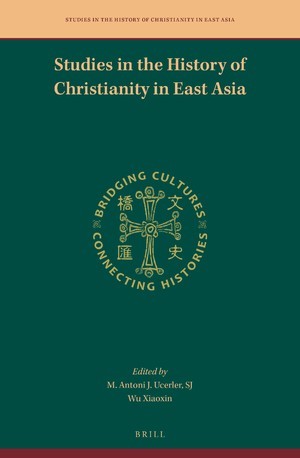Historical Legacies of Christianity in East Asia
As part of this project, the Ricci Institute launched a new academic monograph series entitled Studies in the History of Christianity in East Asia.
The academic goals
Strengthening current research in the field of Christian history in East Asia by creating a new forum for
(a) in-depth studies and
(b) the publication of primary source materials in different languages, including critical translations thereof
Broadening the scope of the study of Christianity in China to include Japan and Korea, by interpreting and re-interpreting the histor(ies) of these regions as mutually “connected”
Developing this growing field of scholarship through a focused series of workshops, fellowships, and publications, thereby building new intellectual bridges that connect scholars from different linguistic, cultural, and academic traditions around the world
Educating a new generation of younger scholars from across the globe by offering them practical training on how to publish both within one’s own academic tradition and for diverse scholarly audiences outside of that tradition.
Three summer Luce Post-Doctoral Research Fellowships will be offered during each of the four years of the grant. The program began in the summer of 2017.
The target audience are young scholars from across the world engaged in research and writing in the field of Christianity in East Asia, including both post-doctoral researchers and junior faculty members.
These Luce Fellowships will complement and enhance the three annual Ricci Doctoral Research Fellowships for students who are at present engaged in writing their doctoral dissertations. For more detailed information on how to apply for the doctoral-level fellowships, download the PDF file here.
Please note that this doctoral fellowship is distinct from the Luce Post-Doctoral Fellowship.
The aim of the Luce Post-Doctoral Research Fellowship—while in residence at the Ricci Institute— is to offer recipients the unique opportunity to participate in and present their research at weekly seminars that focus on archival, historiographical, and methodological issues relevant to different areas of East Asia. These will be attended by both Luce Research and Ricci Doctoral Fellowship recipients as well as by our regular cohort of distinguished senior scholars who come to the Ricci Institute every summer to conduct their own research and to present their work in progress.
The Ricci Institute will make available to these scholars our extensive bibliographical and archival resources, manuscript, printed, and digital, as well as our expertise in the use of these unique collections.
As stated above, this fellowship is open to post-doctoral level applicants, including Junior Faculty members (i.e. within five years of having received the PhD). We invite research proposals primarily based on the archival collections at the Ricci Institute in preparation for research publications.
Topics of enquiry may include Chinese-Western cultural history, history of Christianity in China, comparative studies of Christianity and cultures in China, Japan, and Korea.
This appointment is for a period of three months with a monthly stipend up to $4,500/month. Applicants who are not U.S. citizens (or Legal Permanent Residents o the U.S.) will need to contact the Ricci Institute well in advance for information regarding proof of English proficiency, visa, and health insurance requirements.
Four mentored international workshops will be organized at prestigious academic institutions in North America, East Asia, and Europe during the grant period for the benefit of post-doctoral scholars and junior faculty who are preparing a book manuscript for publication.
Edited by:
M. Antoni J. Ucerler, Ricci Institute for Chinese-Western Cultural History, Boston College, S.J.
Wu Xiaoxin, Ricci Institute for Chinese-Western Cultural History, Boston College
Publication Date
16 Dec 2021
Description
The primary focus of this new peer-reviewed monograph series will be the study of Christianity in East Asia. It will reflect “local” (i.e. Chinese, Japanese and Korean) themes as well as comparative perspectives that explore the historical, cultural, and religious connections that mark the interactions between these countries. Subject matter may include but is not limited to: church history, cultural anthropology, historical linguistics, history of science and medicine, global history, and comparative studies. The series will also include critical studies of primary sources related to the history of Christianity in East Asia and/or critical translations of those sources, with accompanying commentary and critical apparatus. Influential works in the field hitherto published only in Japanese, Chinese, or Korean respectively will additionally be carefully selected, translated into English, and made available to an international audience with the aim of promoting scholarly dialogue beyond local linguistic constituencies.



